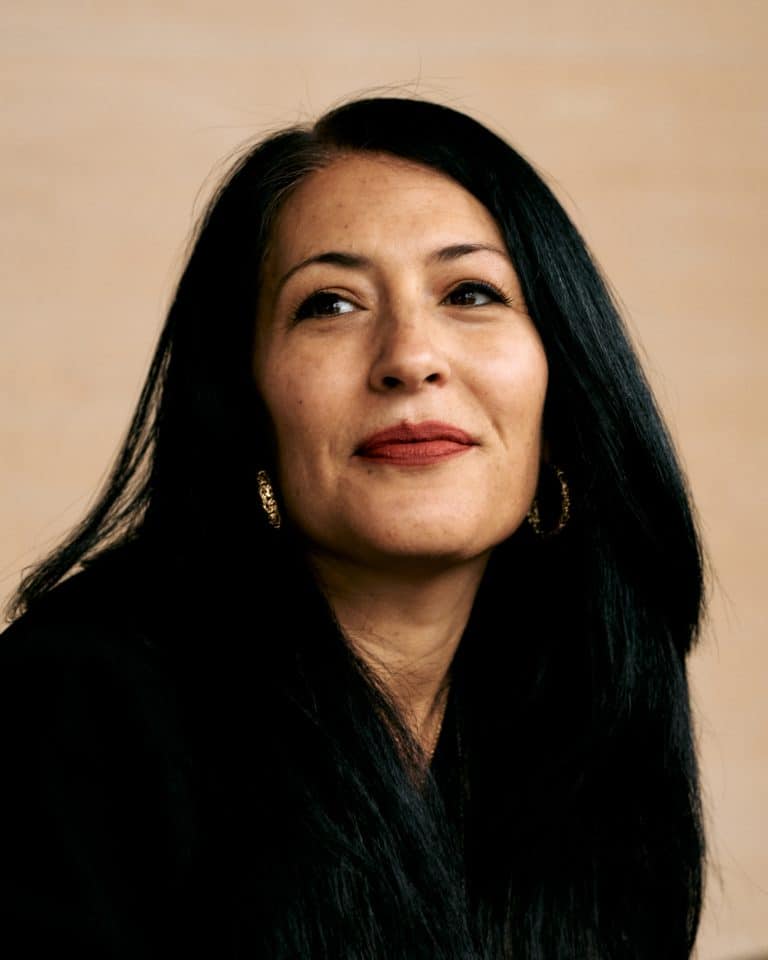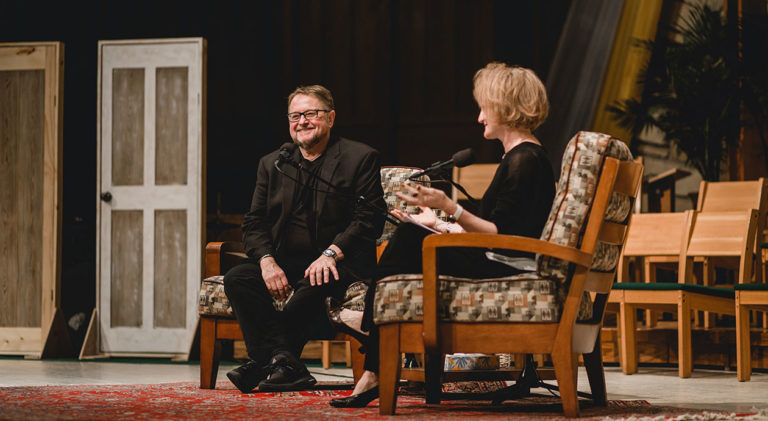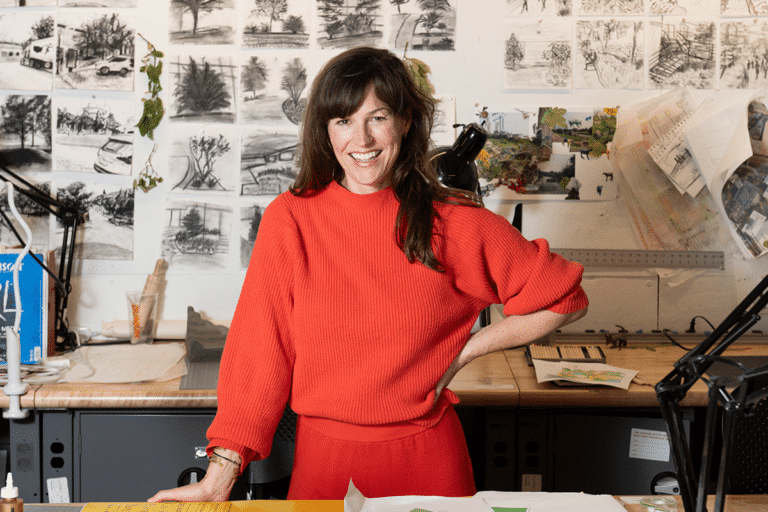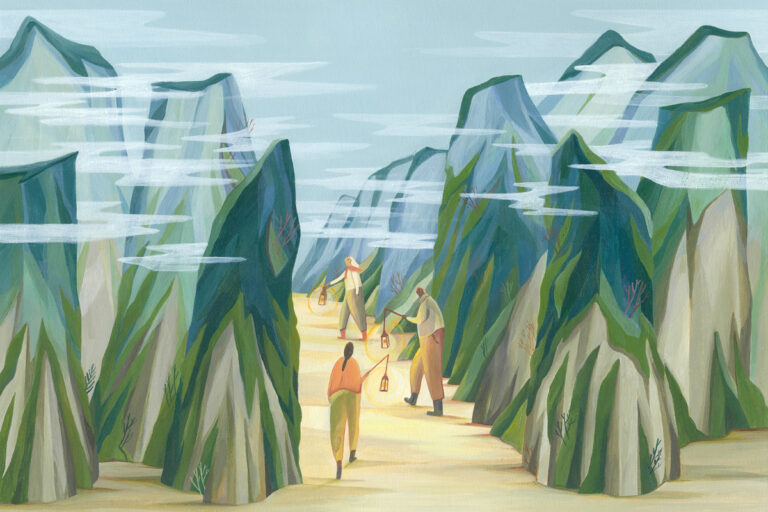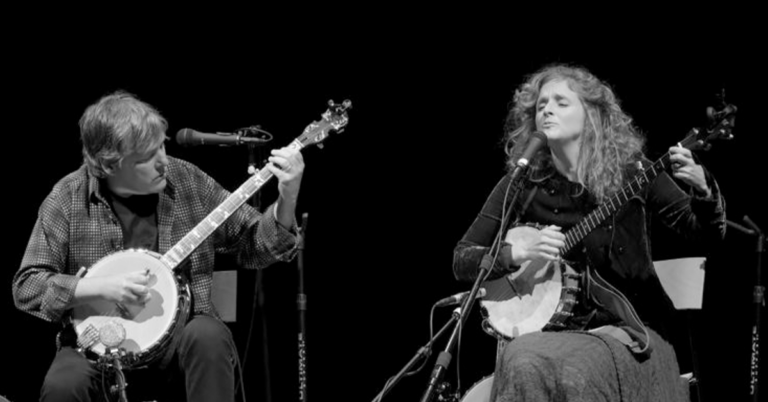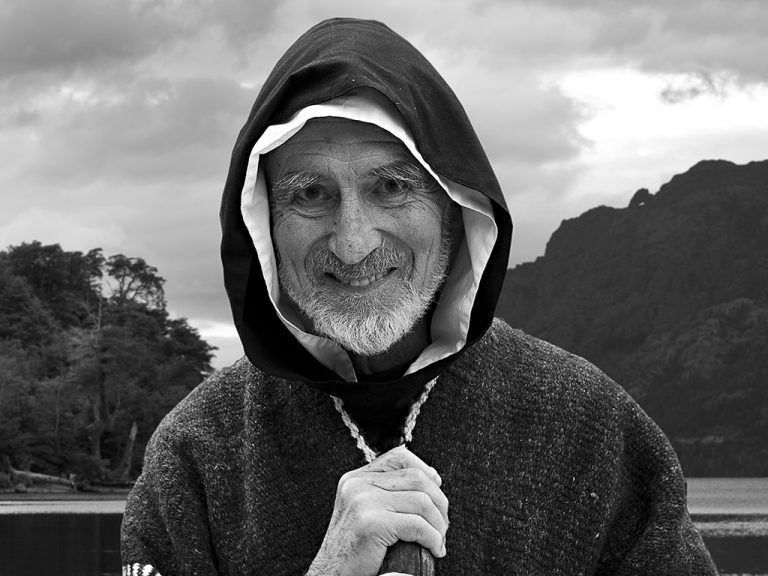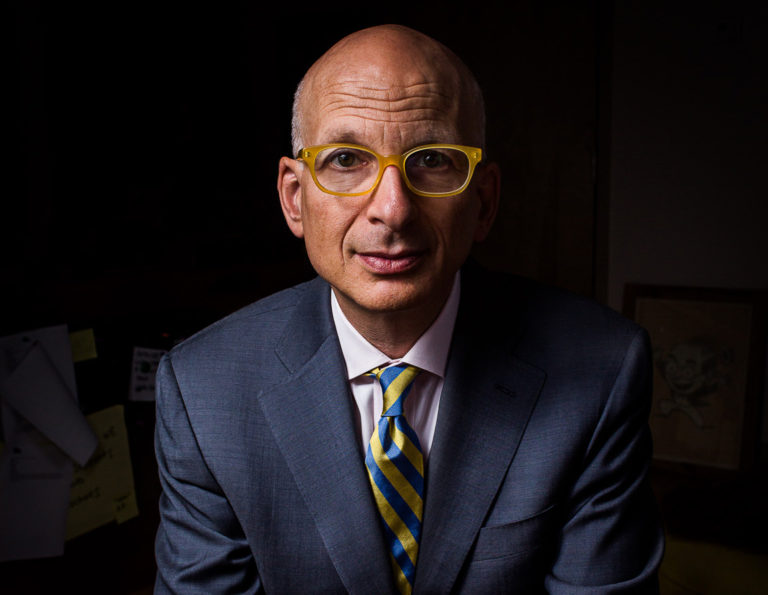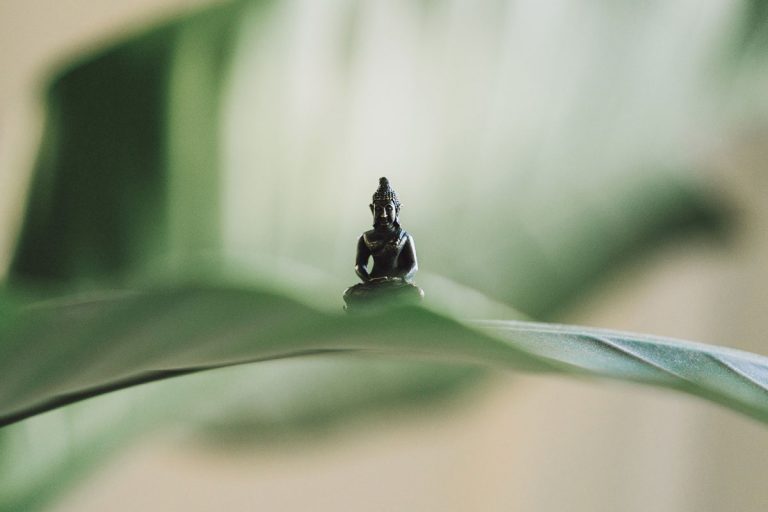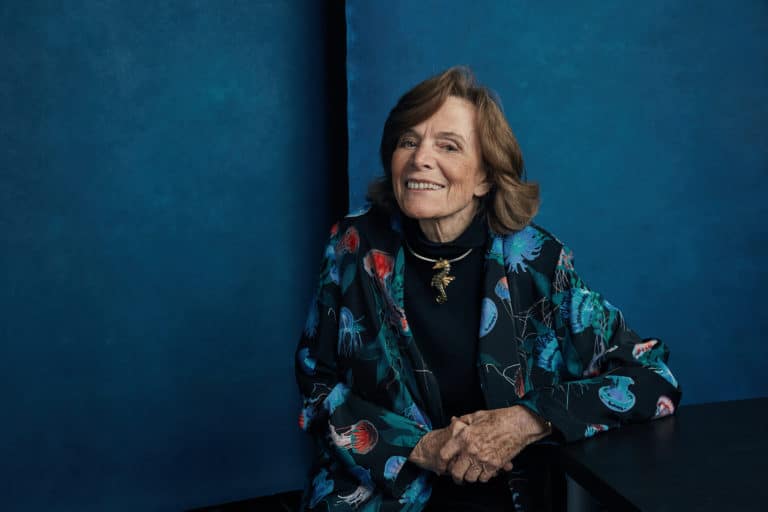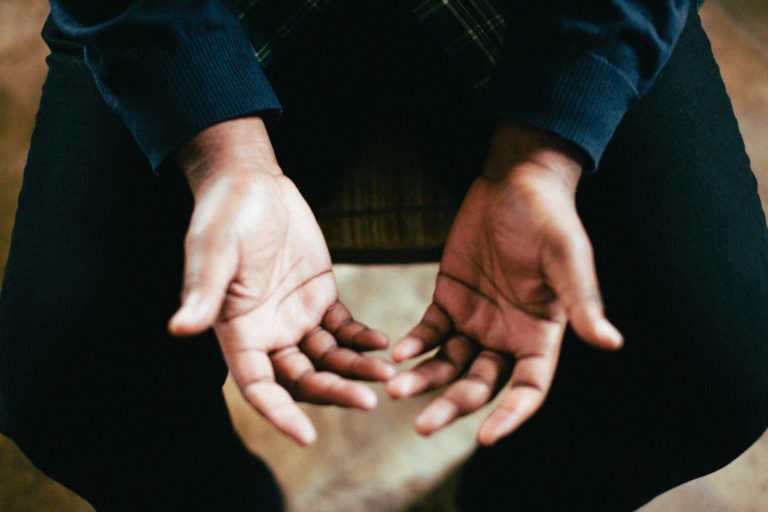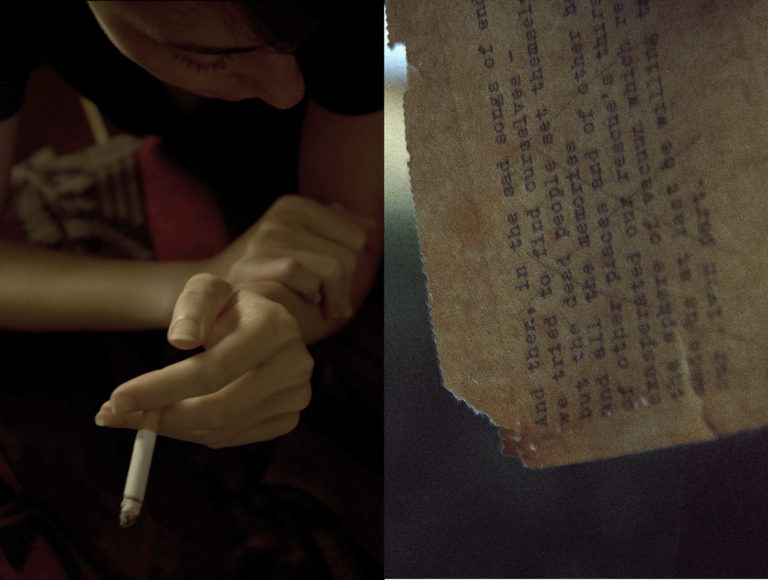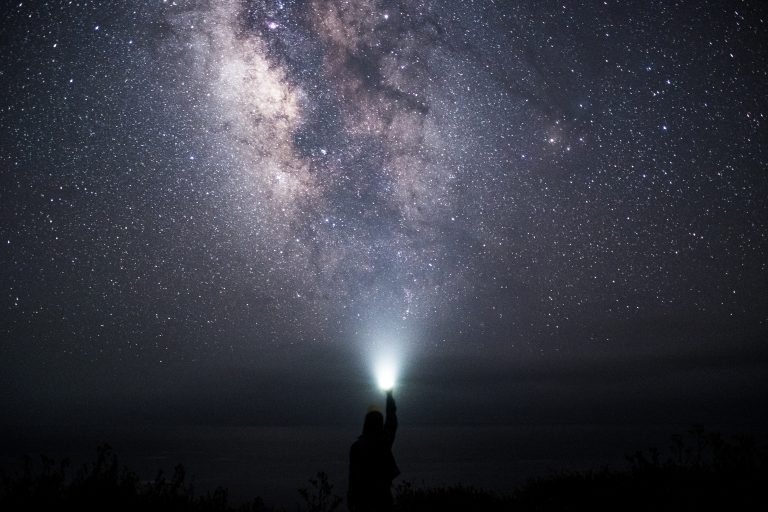We explore the spiritual aspect of addiction and recovery from two illuminating perspectives. Susan Cheever has written a biography of Alcoholics Anonymous co-founder Bill Wilson. She knows addiction in her own life and that of her father, the fiction writer John Cheever. Also, Lakota teacher and healer Basil Brave Heart of the Pine Ridge Indian Reservation in South Dakota. He describes how the 12 Steps find powerful resonance in indigenous spiritual practices.
Search results for “ellen davis”
View
- List View
- Standard View
- Grid View
Filters
An electric conversation with Ada Limón’s wisdom and her poetry — a refreshing, full-body experience of how this way with words and sound and silence teaches us about being human at all times, but especially now. With an unexpected and exuberant mix of gravity and laughter — laughter of delight, and of blessed relief — this conversation holds not only what we have traversed these last years, but how we live forward.
It unfolded at the Ted Mann Concert Hall in Minneapolis, in collaboration with Northrop at the University of Minnesota and Ada Limón’s publisher, Milkweed Editions.
We humans have this drive to erect barriers between ourselves and others, Luis Alberto Urrea says, and yet this makes us a little crazy. He is an exuberant, wise, and refreshing companion into the deep meaning and the problem of borders — what they are really about, what we do with them, and what they do to us.
The Mexican-American border was as close and personal to him as it could be when he was growing up — an apt expression of his parents’ turbulent Mexican-American divorce. In his writing and in this conversation, he complicates every dehumanizing stereotype of Mexicans, “migrants” — and border guards. A deep truth of our time, Luis insists, is that “we miss each other.” He offers a vision of the larger possibility of our time beyond the terrible tangles of today: that we might evolve the old illusion of the melting pot into a 21st-century richness of “us.” And he delightfully models that messiness and humor will be required.
November 16, 2023
Sara Hendren
Our Bodies, Aliveness, and the Built World
Our built world is designed around something called “normal,” and yet every single one of our bodies is mysterious, and constantly adapting for better or worse — and always, always changing. This is a fact so ordinary — and yet not something most of us routinely pause to know and to ponder and work with. But Sara Hendren has made it her passion, bringing to it her varied vocations and gifts: being a painter and loving how art reveals truth not by way of simplicity, but by juxtaposition; teaching design to engineering students; parenting three beloved children, one of whom has Down syndrome.
This is a conversation that will have you moving through the world both marveling at the ordinary adaptations that bodies make and asking, in Sara’s words, “restless and generative questions”: of why we organize the physical world as though vulnerability and needs for assistance are not commonplace — indeed salutary — forms of experience that reveal the genius of what being human is all about.
“Becoming other people” for a living, as Kerry Washington likes to describe her craft, turns out to be a revelatory lens on the high drama that is the human condition. As a “learning actor,” a kind of actor/anthropologist, she has brought elegance and moral rigor to all kinds of roles: as the uber-glamorous, tough-as-nails Olivia Pope on Scandal; as the wife of Idi Amin and the wife of Ray Charles; from Little Fires Everywhere to Django Unchained. Just after Scandal ended seven triumphant seasons, she starred on Broadway as Kendra, a jeans-clad mother in a Miami police station waiting to hear what has happened to her beloved son. Krista was in that audience, and saw how Kerry attended not just to her role on stage but to bringing a beautifully racially mixed audience to participating and reflecting together.
So this conversation has been a while in coming. It is rich with grace and surprising angles of insight — on the roles we all learn to play in the stories of the lives that we are given, and the evolution that is possible in how we assume those characters and leave them behind and grow them up.
This episode of On Being was produced with consideration of the ongoing SAG-AFTRA strike and with external legal guidance. In distributing this episode, we attest to our belief that no statements made involve promotion of struck work in violation of the SAG-AFTRA Strike Order.
We’re in a time as thick with uncertainty as with possibility. Many of us are still, and again, exhausted — and yet opening, fitfully, to what we’ve learned and have been called to at this moment in the life of the world. Toward nourishing that, the second offering in our new series, The Future of Hope, with social creative Darnell Moore in conversation with filmmaker dream hampton. The influence they wield spans hip-hop to Netflix to the Oscars; from the Movement for Black Lives to Surviving R. Kelly.
It is an honor to enter this tender, intimate conversation between two dear friends. In them we experience a muscular hope in justice oriented toward redemption — and calling out in a spirit of “calling in.”
We are digging into the archives to celebrate some of the conversations listeners have loved the most and that have shaped this project. Béla Fleck is one of the greatest living banjo players. He’s followed what many experience as this quintessential American roots instrument back to its roots in Africa, and he’s taken it where no banjo has gone before. Abigail Washburn is a celebrated banjo player and singer, both in English and Chinese. These two are partners in music and in life — recovering something ancient and deeply American all at once, bringing both beauty and refreshment to what they play and how they live.
We’re in a season of renewal in the natural world and in spiritual traditions; both Easter and Passover this year are utterly transformed. It’s drawing us back to the wisdom of Br. David Steindl-Rast, who makes useful distinctions around experiences that are life-giving and resilience-making yet can feel absurd to speak of in a moment like this. A Benedictine monk for over 60 years, Steindl-Rast was formed by 20th-century catastrophes. He calls joy “the happiness that doesn’t depend on what happens.” And his gratefulness is not an easy gratitude or thanksgiving — but a full-blooded, reality-based practice and choice.
“We are flying too low. We built this universe, this technology, these connections, this society, and all we can do with it is make junk? All we can do with it is put on stupid entertainments? I’m not buying it.”
Seth Godin is wise and infectiously curious about life, the internet, and everything. He was one of the first people to name the “connection economy.” And even as we’re seeing its dark side, he helps us hold on to the highest human potential the digital age still calls us to. His daily blog is indispensable reading for many of us. He’s a long-time mentor to Krista. This interview happened in 2012. Seth now has a new podcast, Akimbo, and a new book coming out, This Is Marketing: You Can’t Be Seen Until You Learn to See.
Anthropologist Helen Fisher explores the biological workings of our intimate passions, the brew of chemicals, hormones, and neurotransmitters that make the thrilling and sometimes treacherous realms of love and sex. In the research she does for match.com and her TED Talks that have been viewed by millions of people, she wields science as an entertaining, if sobering, lens on what feel like the most meaningful encounters of our lives. In this deeply personal conversation, she shows how it is possible to take on this knowledge as a form of wisdom and power.
A literary thinker with a “telescopic view of time”; an astrophysicist with an eye to “cultural evolution towards good.” What unfolds between these two is joyous, dynamic, and unexpectedly vulnerable — rich with cosmic imagining, civic pondering, and even some fresh definitions of the soul. A live taping from the inaugural On Being Gathering at the 1440 Multiversity in California.
Flutist and vocalist Nathalie Joachim is a magnetic voice of one of the unexpected aspects of our globalized world — new generations reclaiming and falling in love anew with the places their parents left. In an odyssey through songs of women, Nathalie Joachim is immersing in Haiti’s ecological and political traumas, as well as its beauty and its promise.
Stephen Batchelor’s secular Buddhism speaks to the mystery and vitality of spiritual life in every form. For him, secularism opens to doubt and questioning as a radical basis for spiritual life. Above all, he understands Buddhism without transcendent beliefs like karma or reincarnation to become something urgent to do, not to believe in.
Oceanographer Sylvia Earle was the first person to walk solo on the bottom of the sea, under a quarter mile of water. She has watched humanity’s enduring fascination with “outer space” while she has delighted in “inner space” — the alien and increasingly endangered worlds beneath earth’s waters. These frontiers, as Sylvia Earle points out, are our very life-support system. She takes us inside the knowledge she’s gathered from a lifetime of research and literally swimming with sharks.
February 14, 2018
Rubén Blades, Ashley C. Ford, David Greene, et al.
This Movie Changed Me
Movies delight and inspire and repel. They’re places the big questions we take up at On Being land in the heart of our lives. They change our lives and our life together. Get out the popcorn for this show, and immerse yourself in film scores and iconic movie moments — with David Greene on how Star Wars changed him, Ashley C. Ford on The Nightmare Before Christmas, Rubén Blades on the 1943 noir Western The Ox-Bow Incident, and more.
The tensions of our time are well-known. But there are stories that are not being told, because they are not violent and not shouting to be heard. One of them is that all over this country, synagogues and mosques, Muslims and Jews, have been coming to know one another. There is friendship. There are initiatives that are patiently, and at human scale, planting the seeds for new realities across generational time. As part of the Civil Conversations Project, a live conversation at the Union for Reform Judaism’s General Assembly in Boston between Imam Abdullah Antepli and Rabbi Sarah Bassin.
“A dysfunctional family is any family with more than one person in it.” Mary Karr has a captivating ability to give voice to what is funny in life’s most heartbreaking moments. She is beloved for her salty memoirs in which she traces her harrowing childhood in southeast Texas — with a mother who once tried to kill her with a butcher’s knife and her own adult struggles with alcoholism and breakdown. Mary Karr embodies this wryness and wildness in her lesser-known spiritual practice as a devout Catholic — an unexpected move she made in mid-life.
“It’s very likely that the universe is really a kind of a question, rather than the answer to anything,” says philosopher technologist Kevin Kelly. He was the founding editor of WIRED and is an original thinker on shaping the character and spiritual meaning of technology. He says our role as good askers of questions will remain the most important contribution of our species in a coming world of AI.
